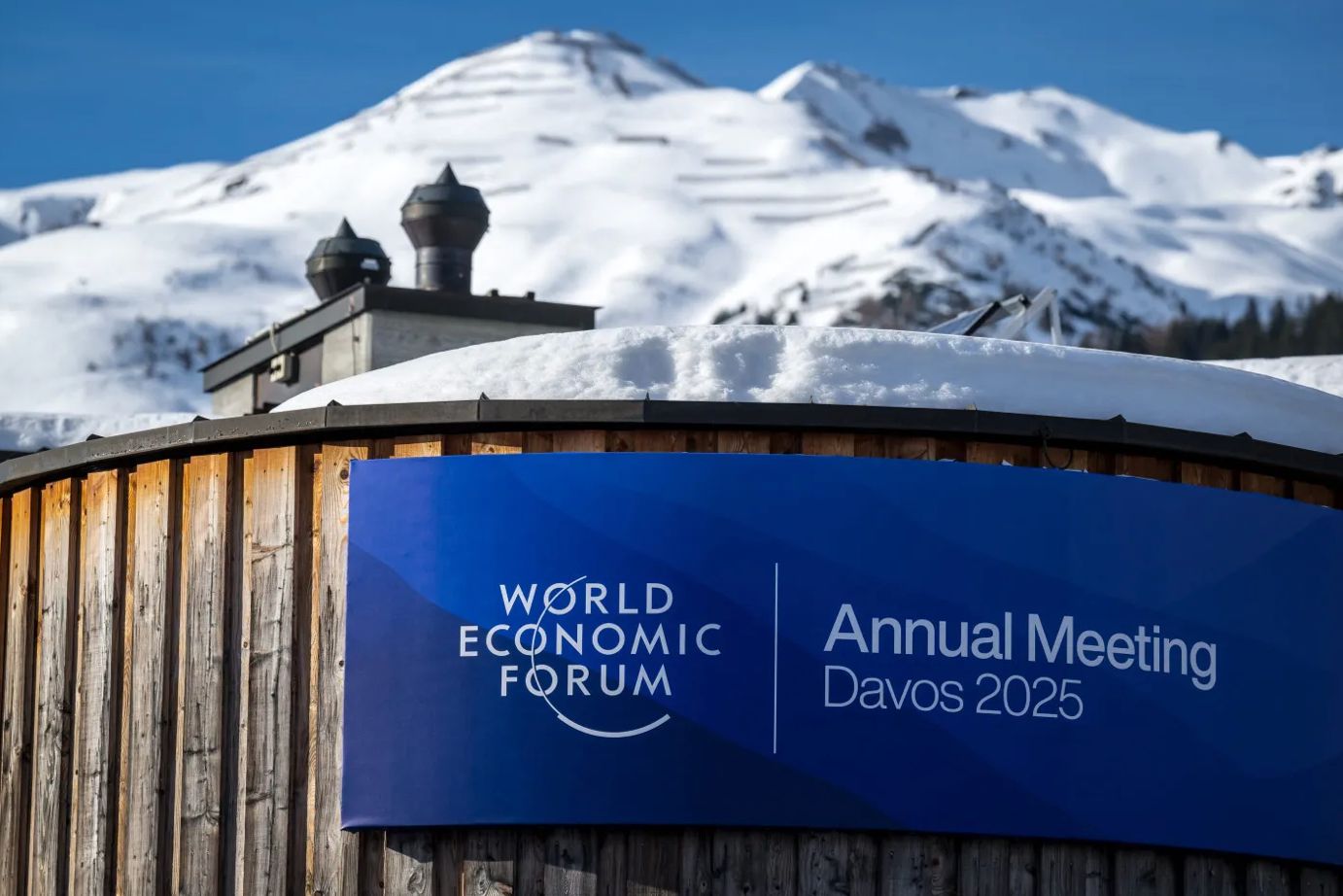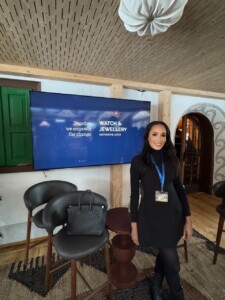
Davos 2025 – Collaboration for the Intelligent Age
“Collaboration for the Intelligent Age.”
– World Economic Forum Annual Meeting 2025
In January 2025, the World Economic Forum (WEF) convened its Annual Meeting in Davos-Klosters, Switzerland, under the theme “Collaboration for the Intelligent Age.” This gathering brought together global leaders from government, business, and civil society to address the world’s most pressing challenges, emphasizing the transformative impact of converging technologies on industries, societies, and economies.
Key Pillars of the World Economic Forum 2025 Agenda:
Set against the backdrop of significant global leadership shifts, including the United States’ withdrawal from key international agreements such as the Paris Climate Accord and the World Health Organization, the forum underscored the urgent need for unified global action in an era of profound change. The forum’s agenda was structured around five interconnected pillars:
- Rebuilding Trust: Addressing societal fragmentation and geopolitical tensions, this pillar focused on restoring trust among global stakeholders. Leaders explored collaborative solutions to bridge international and societal divides.
- Reimagining Growth: In light of evolving economic landscapes, discussions centered on innovative strategies to stimulate economic development and improve living standards, identifying new sources of growth in the global economy.
- Investing in People: Highlighting the importance of human capital, this pillar emphasized investments in education, skills development, and job creation to build resilient and inclusive societies.
- Safeguarding the Planet: Recognizing the pressing issues of climate change and environmental degradation, the forum underscored the need for innovative partnerships, increased financing, and the deployment of frontier technologies to drive action in energy, climate, and nature conservation.
- Industries in the Intelligent Age: This pillar examined the transformation of industries through technology, discussing how business leaders can balance short-term objectives with long-term imperatives in the context of rapid technological change.
Highlights from Davos 2025:
 Engaging in Davos on the sidelines of the World Economic Forum, as a member of The Forum of Young Global Leaders was an
Engaging in Davos on the sidelines of the World Economic Forum, as a member of The Forum of Young Global Leaders was an exceptionally profound and memorable experience. I had the privilege of sitting in sessions featuring distinguished leaders such as Jamie Dimon (CEO of J.P. Morgan), Larry Fink (CEO of BlackRock), and Marc Benioff (CEO of Salesforce). I had fascinating discussions with leaders in accademia, including Sally Kornbluth (President of Massachusetts Institute of Technology). I drew inspiration from investors I admire, including Robert F. Smith (Chairman and CEO of Vista Equity Partners), whose transformative leadership exemplifies a commitment to excellence, and empowerment. I enjoyed connecting with Marcelo Claure, a fellow Young Global Leader, who shared his remarkable journey as an entrepreneur and investor, highlighting the importance of community and paying it forward.
exceptionally profound and memorable experience. I had the privilege of sitting in sessions featuring distinguished leaders such as Jamie Dimon (CEO of J.P. Morgan), Larry Fink (CEO of BlackRock), and Marc Benioff (CEO of Salesforce). I had fascinating discussions with leaders in accademia, including Sally Kornbluth (President of Massachusetts Institute of Technology). I drew inspiration from investors I admire, including Robert F. Smith (Chairman and CEO of Vista Equity Partners), whose transformative leadership exemplifies a commitment to excellence, and empowerment. I enjoyed connecting with Marcelo Claure, a fellow Young Global Leader, who shared his remarkable journey as an entrepreneur and investor, highlighting the importance of community and paying it forward.
I engaged in discussions on pivotal topics, delving into the intersection of climate change and artificial intelligence, the responsible development of AI, resilience and adaptability in the face of disruption, health innovation and gender equity, and purpose-driven leadership to tackle the defining challenges of the 21st century:
 Quantum and AI: “Agentic AI” – artificial intelligence systems capable of autonomous decision-making – emerged as a focal point of discussion. Dell Technologies’ Chief Technology Officer, John Roese, predicted that 2025 would be a pivotal year for agentic AI. He described the emergence of agentic AI architecture as a new chapter in human-AI interaction, with AI agents poised to revolutionize engagement across various sectors. Demis Hassabis of Google DeepMind raised concerns, underscoring the necessity for secure measures and controlled experimentation in the development of agentic AI, underscoring the critical importance of implementing robust regulatory frameworks and ethical guidelines to mitigate associated risks.
Quantum and AI: “Agentic AI” – artificial intelligence systems capable of autonomous decision-making – emerged as a focal point of discussion. Dell Technologies’ Chief Technology Officer, John Roese, predicted that 2025 would be a pivotal year for agentic AI. He described the emergence of agentic AI architecture as a new chapter in human-AI interaction, with AI agents poised to revolutionize engagement across various sectors. Demis Hassabis of Google DeepMind raised concerns, underscoring the necessity for secure measures and controlled experimentation in the development of agentic AI, underscoring the critical importance of implementing robust regulatory frameworks and ethical guidelines to mitigate associated risks.
Energy Transition: Energy transition was a central theme, with leaders emphasizing the urgent need to accelerate the deployment of low-emission technologies. Currently, these technologies are at only 10% of the levels required to meet the 2050 climate. Discussions highlighted the transformative role of artificial intelligence (AI) in the energy sector. AI is being leveraged to optimize energy consumption, enhance grid management, and facilitate the integration of renewable energy sources. However, the rapid growth of data centers, driven by increased digitalization and AI applications, presents a significant challenge. It is projected that demand from data centers will grow by more than 160% by 2030, underscoring the need for sustainable energy solutions to support this expansion.
“By embracing constructive optimism and believing in our collective capacity and commitment to improving the state of the world, we can, shape the Intelligent Age as an age where every human being can realize their full potential.”
– Klaus Schwab, World Economic Forum Founder
Healthcare Innovation and Equity: Google DeepMind showcased the potential of AI in drug discovery, highlighting its ability to lower costs, accelerate time-to-market, and improve outcomes for underserved populations. Discussions also centered on closing the women’s health gap, a move that could add 27 million disability-adjusted life years annually and boost global GDP by $400 billion per year—potentially reaching $1 trillion annually by 2040, according to McKinsey. These discussions highlighted the critical intersection of technology and equity in shaping a healthier future. Leveraging AI in healthcare, coupled with targeted investments in women’s health, presents a dual opportunity to advance medical innovation and promote economic growth.
Upskilling for the Intelligent Age: We delved into the rapid advancements in quantum and artificial intelligence (AI) technologies and their profound implications for job markets, workforce skills, and societal structures. With automation poised to reshape industries, leaders emphasized the importance of lifelong learning initiatives and reskilling programs to ensure inclusivity and equity in the digital economy and the workforce of the future.
 Looking Ahead
Looking Ahead
Reflecting on this experience, I perceive a world poised at the crossroads of disruption and opportunity. Advancements in AI and quantum computing, coupled with the urgent need for climate action and workforce transformation, underscore the necessity for collaboration and visionary leadership to shape a more equitable, inclusive, and sustainable future. For those dedicated to addressing the world’s most pressing challenges, this is a moment to advance with renewed conviction and courage. Purpose-driven leadership must rebuild trust, reimagine growth, and prioritize our shared humanity to meet the demands of the Intelligent Age.
I extend my gratitude to the members of the YGL community for making this experience truly memorable. I look forward to building more memories together, strengthening bonds, and exploring new avenues for collaboration, translating these experiences into meaningful action.
The forum concluded with a collective commitment to transform cautious optimism into decisive action. The path forward lies in forging strong public-private partnerships, embracing innovation, and prioritizing sustainable, equitable progress for all.
#Leadership #Innovation #Technology #VC #Growth #Global #AI #IntelligentAge #Healthcare #Finance #Energy #Startup #Invest #Disrupt
Watch highlights from the World Economic Forum Davos 2025.







